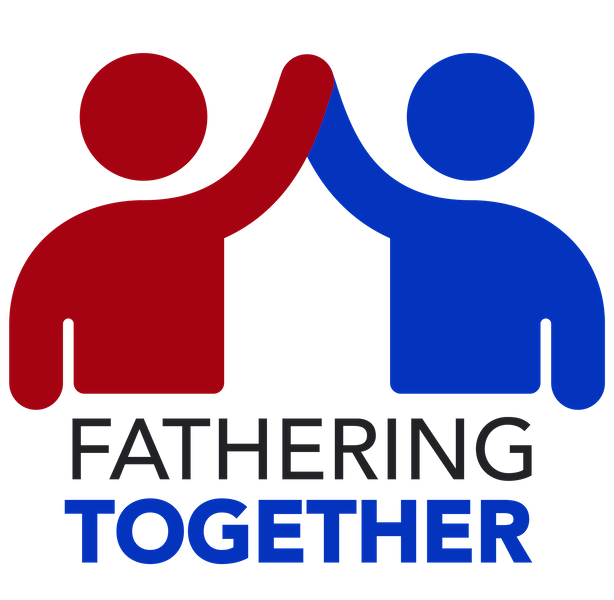
My 13-year-old son, Yosef, is Black. I’m white. Most times, we’re too busy to take notice of the difference.
Never, though, have I felt a pastier shade of white than when I talk to my son about the anecdotes of racism that dot the national headlines on what recently seems to be a daily basis.
When President Trump calls U.S. Rep. Elijah Cummings out in the context of Baltimore crime statistics and subpar housing conditions, Yosef looks to me to make sense of people calling our commander in chief a racist, asking in confusion, “They’re saying the President is racist. What?”
After the news leads with a story of a New York City cop’s firing for his involvement in the chokehold death of a Black man, I am instantly filled with dread for the explanation I’ll owe my son later that evening. Without fail, I’ll clumsily attempt to simultaneously explain the polarized outrage of the local police union for the officer’s firing and the black community for the victim’s unwarranted death.
I attempt to deflect, telling Yosef, “There is a long history of distrust among the police and the black community in the U.S.”
Yes, there is no shortage of material to showcase racism in America. And, as I pick through the various layers of all these highly charged stories from the lens of a white dad with a young, Black child, I often start out more confidently than I finish.
Yosef’s first questions are easy and informational, like, “Dad, why is saying that Baltimore is rat-infested considered racist? What’s do rats have to do with race?” Or, “Why is there a group of cops around one, unarmed Black guy?”
My confidence brims initially, saying, “Well, Yosef, cops need back up in a rough area when things escalate.”
Yosef, seemingly unsatisfied, continues, “It always seems like it’s the Black men getting a bunch of cops called on them.”
These follow-ups require more and, regrettably, I often fumble my responses as my own racial biases percolate. “It’s complicated,” I say. “These areas are bad places and, often, mostly black. Cops have to assume the worst to protect themselves.”
Most of the time Yosef will move on and leave me trying to discern whether he’s satisfied with my answer or disgusted with the thought of his father making excuses for a white police officer sending a Black man to his premature grave.
Racism ends when conversations start
I’m a 42-year-old man who was raised in a homogeneously white community and, at times like these, bringing up a strong, Black son through the simmering racism throughout our country seems an impossibility.
I’m not perfect. I clearly carry my own racial biases – on display as I talk about race to my family and friends. I don’t know how best to talk about race. I do, though, recognize the need to fight the urge to avoid the uncomfortable conversations that racial differences require.
I don’t think I’m alone and you don’t have to be raising a child of another race to struggle with such a heavy, divisive topic.
But people like me tend to take the easy way out when race matters arise. It is far too easy to point to one’s African-American friends and claim, by virtue of having dinner together twice a year, to feel connected. Just as hollow is the idea that my son could spend a few hours with a black man to make him feel at ease reasoning through his own brushes with race. Easiest of all, though, is calling others racist without acknowledging the biases each of us have learned and maintain – those we often gift to our kids.
The conversations about racism I’m having with my son tell me the divide in America is growing. The only way to scale the widening chasm is to do what Yosef and I are forced to do in my living room while watching the news: confront our own racial biases, uncertainties and fears head-on and absent fear of immediate judgement.
At the end of one of those conversations recently, a passing comment by Yosef gave me pause. He said, “Dad, if I’m around trouble, I guess police will assume the worst in me, huh?”
Although Yosef’s tone was more sober than sad, a piece of me breaks when I realize that his world outside the walls of our home is far different than mine. That must be a heavy weight to carry. It’s baggage I should be helping him unpack and not fold into his backpack more efficiently.
Even if I don’t hide the subtleties of my own racial biases, the ability to talk openly about such emotionally charged topics with Yosef is cathartic and necessary. These discussions help my son and I try to make sense of the divisions that exist in, not only America, but under our own roof as well.
Yosef has given me many gifts over the years. The most important one, I’m learning, is the tremendous opportunity of learning from the perspective of a young, black man – a present that I’ll never fully get as an older, white male.
Airing my own views of race, no matter how ignorant, skewed or short-sided, helps Yosef and I understand each other better. I hope Yosef feels curious enough to continue these vulnerable discussions that, rightfully, make us uneasy.
Those chats are his gift to me.
My gift to Yosef is, I gather, the gradually less clumsy, less white-centric responses that signal the shedding of my own learned, racial predispositions.
That’s how I plan to scale our racial divide. I’d invite other to join us as we traverse.

Leave a Reply